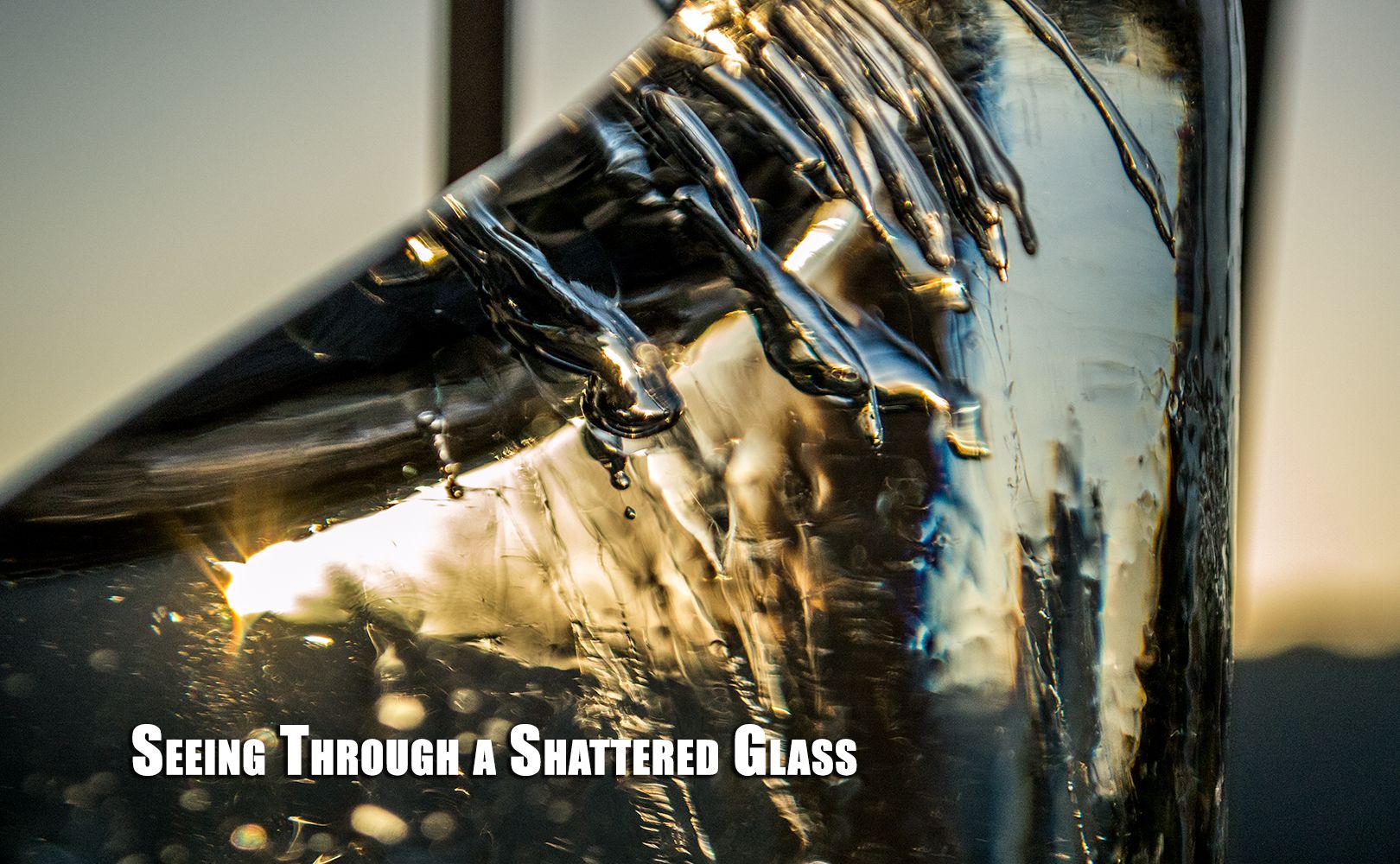The Complexity of Disinformation

Hey, people, first time posting in this community. I've had quite a bit of experience with the news industry both from within and without, and I think this is a perfect moment for me to start sharing a few thoughts, considering the context of turmoil that most of the world is in right now.
When we talk about the news and official statements, we're not talking about truth or even facts, but about narratives. Though media outlets do indeed keep us up to date with whatever's happening around us, they weave their own interpretations, the biases of their writers and editors, and the interests of their stakeholders into the way they approach events and report them. Additionally, governments themselves are black boxes, making sensitive decisions that never emerge to public notice. What does disinformation mean, then, if the people who should be informing us already conceal and misrepresent facts subtly or bluntly?
Let's consider this article posted yesterday in the New York Times, reporting the suspension of a panel within the U.S. Department of Homeland Security created just a month ago to combat disinformation and called the Disinformation Governance Board, after it became the target of heavy criticism from all political sectors and even civil rights groups, but particularly from the Republican front, referred to as "the right." There were fears that this panel could act as Homeland's censorship arm, policing what people could say or post on any public platform. The headline reads "A Panel to Combat Disinformation Becomes a Victim of It."
According to the article, the Republicans set up a disinformation campaign that stopped the panel on its tracks, and Nina Jankowicz, the authority set to lead it, said that it was disappointing to see it disrupted by "mischaracterizations", and that the way it happened is testament to how necessary the board is. Only the words of one critic on Twitter, Republican Representative Matt Gaetz of Florida, are quoted in this report; another person, Angelo Carusone, president of Media Matters for America (referred to as a "left-leaning" watchdog,) said that the attack on the board was probably concerted. No other groups are specifically mentioned or quoted. The article refers to an earlier report by The Washington Post but doesn't link to it. Searching WaPo's page, I noticed that Jankowicz has written extensively on fake news and disinformation, and also found their own report about the suspension, which is far better supported and more impartial, going into detail regarding the harassment that Jankowicz had to endure this past month, including sexism, antisemitism and death threats, while also outlining the pushback against the board in more general terms.
Where's the disinformation here? Where's the truth? Let's disassemble this a bit, shall we?
- The U.S. Department of Homeland Security established a board within itself that would be in charge of fighting disinformation, probably after lengthy discussions and quite a bit of bureaucracy. Did the DHS ever reach out to the media or inform the public about this process before announcing the creation of such a board? Doesn't seem so, their official page has no news on this board or its suspension.
- Former director Jankowicz said that the board's goal was different from the portrayal against it, but neither her nor Homeland Secretary Alejandro Mayorkas explained the extents, assets and purported functions of this board. A CIA analyst, Cindy Otis, also said that the board was "mischaracterized," but were the concerns over it truly outlandish?
- Rep. Gaetz, the only critic cited in the NYT article, said in propagandist jargon that they'd "killed the Ministry of Truth," a melodramatic statement that seems to put criticism of this board under a light of ridicule, but what of civil rights organizations and conservative groups who also criticized it? Couldn't they have been making a valid case? WaPo again shows a bigger picture: while the board itself may not have been able to censor anything, the opacity of its conception and implementation can't be denied.

Some relevant observations
The majority of readers never get past a headline, some may read an article partially or even fully, very few would engage in actual research about any topic and enter various news sites to follow a story. We can see how the NYT's piece uses divisive and vague labels such as "victim", "right" and "left", how it fails to properly report the abuse suffered by Jankovicz and also the broad array of objections against the board she was supposed to lead, which didn't come only from Republicans though their campaign was indeed aggressive. The article is also protected by paywall while WaPo's is much more complete and free to read. Regarding the DHS, they quite obviously botched this and it has nothing to do with critics, these initiatives should be observed skeptically, if they don't withstand the slightest scrutiny and pressure, then perhaps their opponents weren't that wrong after all. On top of this, the participants of this narrative, from public officials to news editors and staffers, have private lives. Some may know each other, some may be linked in other ways that we couldn't possibly fathom. All of this introduces noise into the equation, harder for people to sieve through the data and reach their own well-thought conclusion with these dissonances.
This simple exercise, applied to any other news reports or official statement by any government, can begin to reveal just how complex the problem of disinformation is, how many vertices and edges it has. Yes, fake news campaigns are a thing, bots and trolls are everywhere chanting support for tyrants and criminals, or insulting and attempting to discredit their opponents; yes, there's deliberate confusion, conspiracy theories, propaganda and plain lies designed to deter legitimate efforts by many institutions in charge of a broad assortment of matters worldwide; yes, each of us have our biases that we apply to every piece of data we consume, knowingly or otherwise. However, official opacity is also a thing, and news outlets do have a responsibility to remain as neutral as possible and to offer as much insight as they're able, and many of them don't adhere to that as much as they claim they do. This is partly because they're companies, they make money for selling stories, not for being impartial.

Is disinformation getting worse?
No, I don't think it is, but we're seeing it more than we used to. Fake news and conspiracy theories aren't a recent phenomenon by any stretch, they've been around for millennia, we just have a name for them now. In general, we have access to far more information than our parents had, and the gap grows exponentially the farther we review the history of our species. In most countries, anyone willing to seek deeper and know more can do so with a few clicks and verifying facts is also much easier and faster. We're all able to see a lot more pieces of the puzzle if we want to.
20 years ago we wouldn't have heard of this board, we probably wouldn't have known the name of the Homeland Secretary or anyone else involved in this situation. Things have changed immeasurably and will continue to change. This community, Hive as a whole, the blockchain and the new systems that will rise or are rising in response to the chaos we're experiencing, are tools through which we, common citizens with vested interests in our societies, can do our part, not necessarily to dismantle the noise, but to increase the coherence. These are a few recommendations to accomplish this.
- Report and block any trolls or bots you find on social media spreading obviously false or misleading information. Don't reply to them, that gives them algorithmic relevance.
- Don't assume you know what's going on. To the best of your ability, grow your awareness of ideological biases and limiting perspectives that may be hindering your understanding of the information you get. This will help your research abilities by increasing the adaptability of your filters, therefore allowing you access to more data.
- Be skeptical about the things you read and watch, that is, continue your inquiry further, don't stay only on the surface. Visit multiple news sites, study their language, compare their narratives. Visit official channels as well, see what State institutions are saying or not.
- Propaganda is tiresome and strident, but it wouldn't work without a kernel of truth. Don't be hasty in dismissing a claim just because it was made by an individual you dislike or a group you distrust.
- Don't engage in arguments, just ask questions. There's no need to persuade others of your ideas and, although the temptation of feeling like we're right is strong, it can lead our judgment astray pretty quickly.
I love these topics, so you'll likely see me once in a while around here. There's no shortage of news but there's definitely a shortage of conscientious study on them. Thanks for reading me!
Comments
You can login with your Hive account using secure Hivesigner and interact with this blog. You would be able to comment and vote on this article and other comments.
No comments